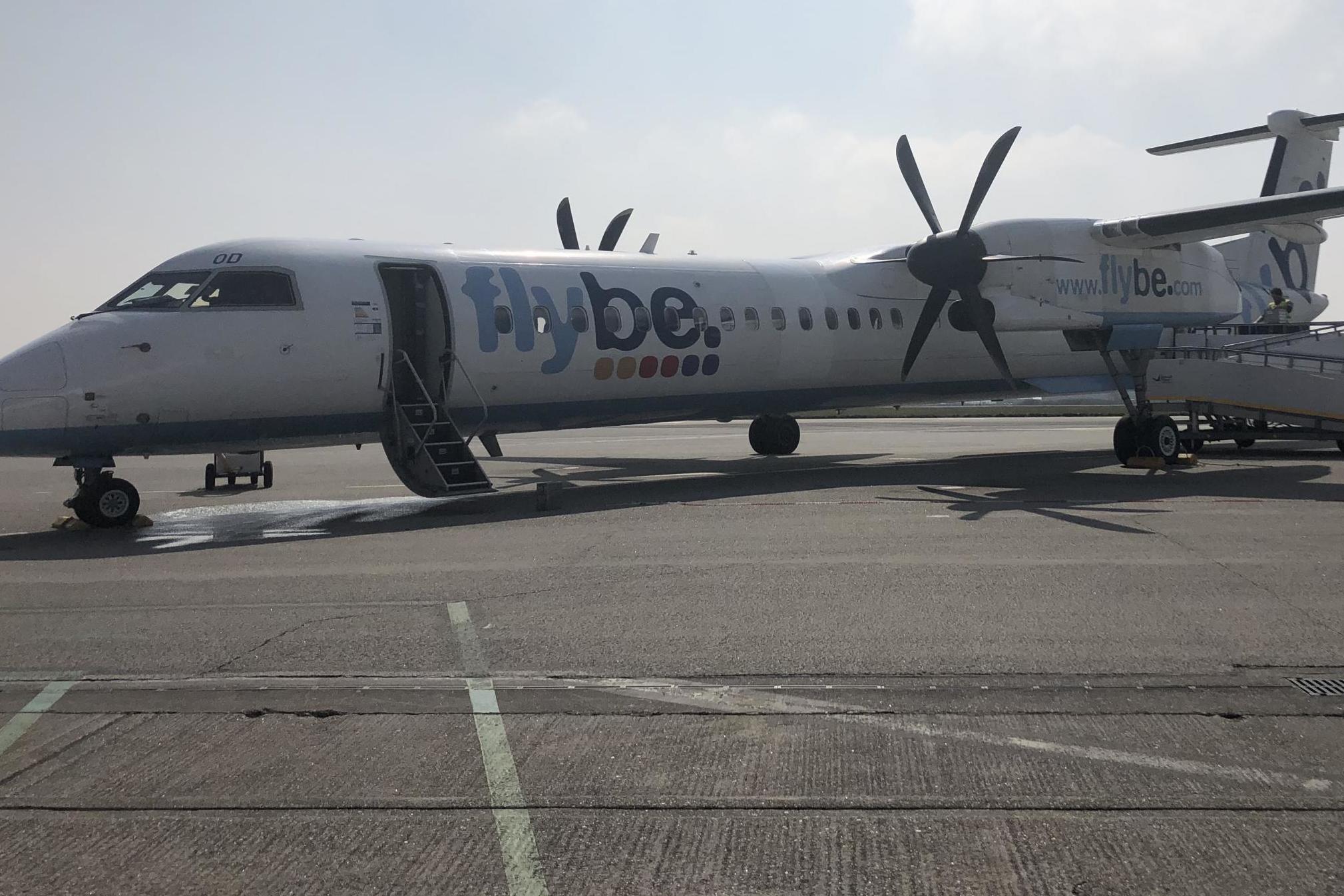This website uses cookies so that we can provide you with the best user experience possible. Cookie information is stored in your browser and performs functions such as recognising you when you return to our website and helping our team to understand which sections of the website you find most interesting and useful.

As Flybe announced the end of one of its key routes, Ryanair boss Michael O’Leary has compared the troubled regional airline to “British Leyland in the 1970s”.
On Tuesday, Flybe was rescued by a government deal that will provide a tax “holiday” on £10m in air passenger duty (APD) the airline owes.
Late on Thursday, it confirmed its Newquay-Heathrow service will finish on 28 March, with flights from Cornwall switching back to Gatwick.
The airline’s owners – a consortium comprising Virgin Atlantic, Stobart Group and a US investment fund, Cyrus Capital – have agreed to pump more cash into the loss-making airline.
But Michael O’Leary, chief executive of Ryanair, has predicted that Flybe will “inevitably” fold.
Created with Sketch.
Created with Sketch.
1/20 Qantas
Check up: the Qantas fleet of Boeing 737-800 aircraft are being examined
Qantas
2/20 Air New Zealand
Air New Zealand
Getty Images
3/20 Eva Air
Eva Air
Getty Images
4/20 Etihad
Etihad
Getty Images
5/20 Qatar Airways
Qatar Airways
Heathrow Airport
6/20 Singapore Airlines
Singapore Airlines
Getty
7/20 Emirates
Emirates
AFP/Getty
8/20 Alaska Airlines
Alaska Airlines
Getty Images
9/20 Cathay Pacific
Cathay Pacific
Getty
10/20 Virgin Australia
Virgin Australia
Getty Images
11/20 Hawaiian Airlines
Hawaiian Airlines
Hawaiian Airlines
12/20 Virgin Atlantic
Virgin Atlantic
Virgin Atlantic
13/20 TAP Portugal
TAP Portugal
Getty Images
14/20 SAS
SAS
AFP/Getty
15/20 Royal Jordanian
Royal Jordanian
Björn Strey/Wikimedia
16/20 SWISS
SWISS
Getty Images
17/20 Finnair
Finnair
Getty
18/20 Lufthansa
Lufthansa
Reuters
19/20 Aer Lingus
Aer Lingus
AFP/Getty
20/20 KLM
KLM
Getty
1/20 Qantas
Check up: the Qantas fleet of Boeing 737-800 aircraft are being examined
Qantas
2/20 Air New Zealand
Air New Zealand
Getty Images
3/20 Eva Air
Eva Air
Getty Images
4/20 Etihad
Etihad
Getty Images
5/20 Qatar Airways
Qatar Airways
Heathrow Airport
6/20 Singapore Airlines
Singapore Airlines
Getty
7/20 Emirates
Emirates
AFP/Getty
8/20 Alaska Airlines
Alaska Airlines
Getty Images
9/20 Cathay Pacific
Cathay Pacific
Getty
10/20 Virgin Australia
Virgin Australia
Getty Images
11/20 Hawaiian Airlines
Hawaiian Airlines
Hawaiian Airlines
12/20 Virgin Atlantic
Virgin Atlantic
Virgin Atlantic
13/20 TAP Portugal
TAP Portugal
Getty Images
14/20 SAS
SAS
AFP/Getty
15/20 Royal Jordanian
Royal Jordanian
Björn Strey/Wikimedia
16/20 SWISS
SWISS
Getty Images
17/20 Finnair
Finnair
Getty
18/20 Lufthansa
Lufthansa
Reuters
19/20 Aer Lingus
Aer Lingus
AFP/Getty
20/20 KLM
KLM
Getty
Speaking on the BBC’s Today programme, he said: “It’s clear no commercial bank would lend money to Flybe.
“So the government is stepping in here, lending them APD, which is unfair on all the other UK airlines, and all the shareholders have to do is put in another £27m.
“They confirmed they put in £110m last year, they’ve burned their way through that in 12 months, so £27m will be gone by the end of March, and then what?”
When the consortium announced its offer for Flybe in January 2019, they promised up to £100m in funding “to invest in its business and support its growth”.
But Mark Anderson, chief executive of Flybe, told staff this week “Our shareholders invested an awful lot of money, believing they fully understood the state of the business they’d bought.
“We were in worse shape than even the shareholders thought we were.
“Three-quarters of the money the shareholders invested was gone before we even really started. That has hurt this business and more money is needed.”
Mr O’Leary said: “Flybe is not a viable business, it never has been. It has lurched from reconstruction to reconstruction, and this is the government misusing state funds to discriminate in favour of Flybe.
“It’s in breach of competition rules, it’s in breach of state-aid rules, which is why the government are covering up the deal. They won’t publish it.
“The government can’t keep lending a non-viable airline £100m every three months to keep non-essential services available.
“If Flybe folds, as it inevitably will, in exactly the same way as we did after Thomas Cook and after Monarch, Ryanair, easyJet, BA, Norwegian and others will step in.
“There will be no loss of regional services.”
Ryanair has given the chancellor a week to extend the same APD “holiday” to other UK airlines.
If Sajid Javid does not agree, Mr O’Leary said he would launch legal proceedings in the UK on competition law and in Brussels on European state-aid rules.
In a statement to parliament, the transport secretary Grant Shapps said: “HMG was notified about the difficulties of Flybe on 11 January, and since then we have worked intensively with the company to understand their financial position and explore options.
“In the light of these discussions the management and shareholders on 14 January took action to set Flybe on a recovery path.”
Michael O’Leary said: “They said the same thing about British Leyland in the 1970s.”
Despite containing profitable marques such as Jaguar, Rover and Land Rover, as well as the best-selling Mini, British Leyland had a troubled history, leading to its eventual collapse in 1975 and subsequent nationalisation.
After much restructuring and divestment of subsidiary companies, it was renamed as the Rover Group in 1986, later becoming a subsidiary of British Aerospace and subsequently, BMW.
The final surviving incarnation of the company as the MG Rover Group went into administration in 2005, bringing mass car production by British-owned manufacturers to an end.
The government has not published any details of the agreement to rescue Flybe, which it says is compliant with state-aid rules.
A Flybe spokesperson said of the deal: “This is a standard Time to Pay arrangement with HMRC that any business in financial difficulties may use.
“This agreement will only last a matter of months before all taxes and duties are paid in full.”



 Africana55 Radio
Africana55 Radio 

